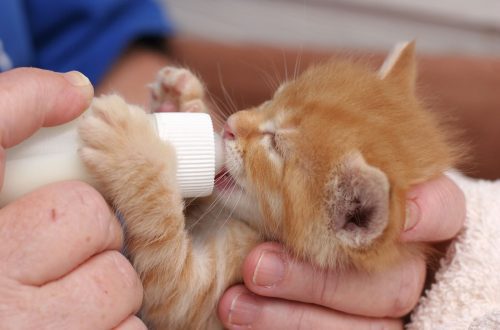
Important information about food allergies and intolerances in cats
Contents
What are food allergies and food intolerances?
Food allergies/intolerances result from a reaction to a particular food ingredient, usually protein. An allergy is sometimes referred to as an “adverse reaction” to a food and is defined as an abnormal reaction to a food or food additive. There are two types of adverse reactions: reactions that involve the immune system (usually referred to as a type of food allergy) and reactions that occur without an immune component (usually referred to as a type of food intolerance).
Allergies can occur throughout the life of the animal, in which case the ingredient in question should be completely eliminated from the cat’s diet.
What causes a food allergy or food intolerance?
It can take months or years before a cat develops an allergic reaction to a particular food. However, after the onset of an allergy, an adverse reaction to this component will occur in a cat in almost all cases. Most often, allergic reactions are associated with protein sources – usually the meat in your cat’s food.
Food products: The most common allergens in cats are beef, dairy and fish.
Damage: inflammation, infections, surgical procedures, and certain medications can harm a cat’s digestive system and lead to allergies or food intolerances.
Age Food allergies and food intolerances can occur at any age.
Breed: Some cat breeds are more prone to developing food allergies or intolerances than others, such as Siamese cats.
Is my cat food sensitive?
If your cat frequently vomits, has diarrhea, skin irritation, poor coat condition, or excessive hair loss, these may be signs of a food allergy. The most common symptoms of a food allergy or food intolerance are digestive disorders and skin irritation. If your cat has developed a food allergy or intolerance, you may experience the following symptoms:
- vomiting or diarrhea
- flatulence,
- frequent itching or hair loss,
- redness and inflammation of the skin,
- chronic ear problems
- slow growth in kittens
- coughing, wheezing and sneezing.
IMPORTANT: Some symptoms of a food allergy or food intolerance are similar to those of other serious conditions, so check with your veterinarian if you notice any of these.
Importance of nutrition
Food allergies or food intolerances can manifest throughout a cat’s life. The main goal of controlling adverse food reactions is to identify and eliminate food allergens responsible for skin and/or gastrointestinal symptoms. With food allergies, it is even more important to properly feed your cat.
Exclusion testing, which means removing a specific ingredient from the food your cat eats, is the most practical and accurate method for diagnosing food allergies in cats. Cat food should be balanced and contain as few ingredients and additives as possible. Take care to exclude your pet from all other cat food, homemade food, treats, snacks, and chew toys during the allergen identification process.
If your cat has an allergic reaction to certain meats, you can try feeding her a new source of protein, such as duck or venison. If this does not help, then the cat is allergic to such proteins and will need food with specially split – hydrolyzed proteins. For an accurate diagnosis and treatment options, consult your veterinarian and ask them to recommend the best food for your cat with a food allergy.
Questions to ask your veterinarian about food allergies:
- What foods should not be given to a cat because of her allergies?
- Ask how human food can affect your cat’s health.
- Would you recommend Hill’s Prescription Diet or Science Plan for a cat with a food allergy?
- Ask about special foods for your cat.
- How much/how often should you feed your cat the recommended food.
- Discuss what treats you can give your cat with the recommended food.
- How quickly will the first signs of improvement in my cat’s condition appear?
- Can you provide me with a written instruction or leaflet about food allergies in cats?
- What is the best way to contact you or your clinic if I have questions (email/phone)?
- Ask if your cat needs follow-up.
- Ask if you will receive a notification or email reminder of this.





